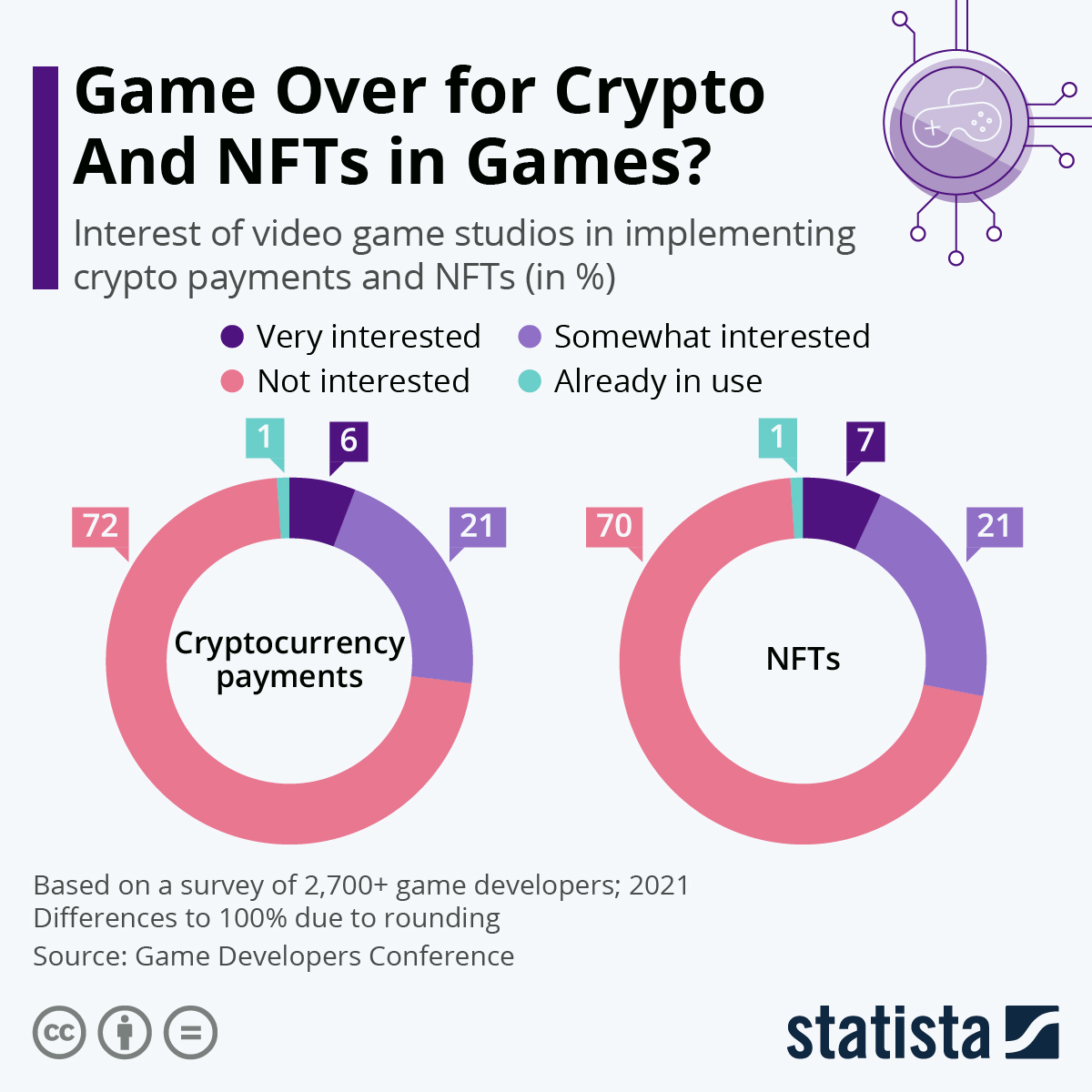Over 70 percent of video game workers claim their studios have no interest in integrating cryptocurrency payments or NFT mechanics into their games. This is the result of the annual State of the Game Industry survey by the Game Developers Conference (GDC), which asks industry professionals about their opinion on developments in the gaming industry. Even though a majority of respondents don't see the validity of crypto and NFT integration in the games space, there is still a sizable share that might be leaning either way in the future.
As our chart shows, 21 percent of survey participants claimed that their studios showed at least some interest in both NFT and cryptocurrency functionality. With Facebook, Twitter and Instagram further embracing the blockchain and recently announcing plans for or already implementing NFT profile pictures, it's likely that some video game studios will also hop on the bandwagon in the future. First attempts to breach the NFT space by traditional gaming companies have proven to be controversial. The rollout of Ubisoft Quartz and its personalized cosmetic items has produced a lackluster response with items selling for only a couple of U.S. dollars each, and developer GSC Gameworld altogether canceled their plans for introducing NFTs into their upcoming action game Stalker 2 after heavy pushback by fans. This attitude is also mirrored by selected comments from the GDC survey, with participants calling NFTs in particular a "pyramid scheme", a "scam" and a "tech looking for purpose" which is "entirely fueled by greed".
Overall, 11.6 percent of participants in a recent global survey by Finder claim to own NFTs with an additional 9.4 planning to buy one in the future. The countries with the biggest share of NFT owners include the Philippines, Thailand and Malaysia. In these countries, playing NFT games like Axie Infinity is considered a legitimate way to earn an income despite roughly 80 percent of all value ascribed to NFTs being owned by nine percent of the community according to reporting by Financial Times. These numbers lend further credence to the question of whether the current iteration of NFTs is indeed a pyramid scheme benefiting only a small number of people.





















